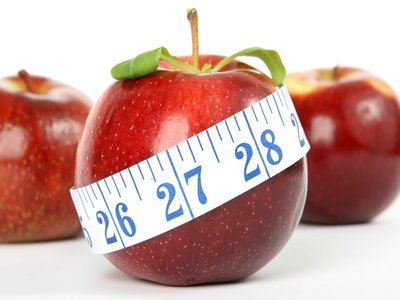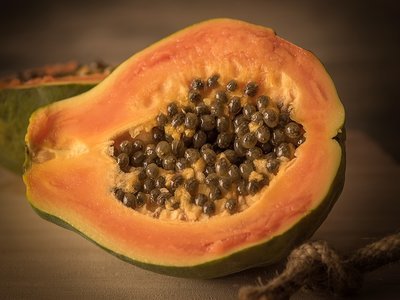Fiber isn’t often people’s go-to when thinking about healthy nutrition. Nonetheless, there may be several health advantages to eating foods rich in fiber. It may aid digestion and perhaps help prevent cardiovascular disease, diabetes, and even certain malignancies. We have a list of some delicious and healthy foods that may help you increase your fiber consumption, if that is a goal of yours.
Benefits of consuming a fiber-rich diet
If you care about your health, you should make an effort to eat more fiber-rich foods. It aids in maintaining a healthy weight by making you feel full sooner and promoting regular bowel motions. Increasing your fiber intake through the foods you eat may help you lose weight, lower your risk of heart disease, and prevent several cancers. For optimal health and a flourishing gut microbiota, you should consume between 28 and 34 grams of fiber daily.
Raspberries
Raspberries are a great addition to your diet for several reasons. With eight grams of fiber in just one cup, they can help reduce cholesterol levels, promote healthy digestion, and keep you feeling full. Plus, they are low in calories and made up of more than 85% water.
Add them to your morning yogurt or smoothie, or enjoy as a snack on their own. Don’t forget, frozen raspberries are just as nutritious as fresh ones and are available year-round!
Green peas
Green peas are a versatile and nutrient-packed vegetable that can be eaten alone or incorporated into a variety of dishes. They are filling and high in both fiber and protein, making them an excellent choice for weight management and blood sugar control. In addition, their rich antioxidant content may help protect against chronic diseases such as heart disease and cancer.
Enjoy green peas steamed or roasted as a side dish, added to salads or soups, or blended into dips and spreads for a healthy and delicious snack option.
Whole-wheat spaghetti
Consuming a diet with high dietary fiber has numerous health benefits, and whole-wheat spaghetti is an excellent source of fiber. Just one cup of cooked whole-wheat spaghetti contains about 6 grams of fiber, helping to reduce cholesterol, regulate blood sugar, and promote healthy digestion.
A simple and delicious way to enjoy whole-wheat spaghetti is by pairing it with a protein such as lean beef, beans, or grilled chicken and topping it with a homemade tomato-based sauce. This meal is not only satisfying but also provides essential nutrients to support your overall wellbeing.
Black beans
Black beans are a great source of protein and fiber and offer an array of health benefits. Consuming black beans on a regular basis can contribute to stronger bones, better heart health, lower blood pressure, and improved blood sugar levels.
These little legumes are easy to incorporate into your diet and can be used in a variety of dishes, such as soups, salads, and tacos. For a quick snack, try blending cooked black beans with garlic, onion, and fresh cilantro for a delicious dip. Give your body a boost with the natural goodness of black beans!
Avocado
Avocado is an incredibly nutritious fruit that offers a host of health benefits. It is brimming with fiber, healthy fats, and vitamins and minerals like potassium, magnesium, and folate. Eating avocado regularly is believed to promote healthy digestion, protect against heart disease, and support the immune system.
You can enjoy avocado in many ways, such as adding it to salads, serving it on toast, or using it to make guacamole. So why not include this amazing superfood in your diet and reap the rewards of its many health-boosting properties?
Artichokes
Artichokes are a powerhouse of fiber, vitamins, and antioxidants that can benefit your overall health. Adding this vegetable to your diet can help regulate blood pressure, improve liver health, promote regular bowel movements, and boost your immunity and mood. Artichoke hearts are an excellent source of dietary fiber, with just over 7 grams of fiber in a 1/2-cup serving.
Try steaming or lightly sautéing artichoke hearts as a delicious addition to pasta dishes, salads, and casseroles. Don’t miss out on the nutritional benefits of this underrated vegetable!
Lentils
Lentils are true superfoods, packed with plenty of dietary fiber, vitamins, and minerals that are beneficial to our overall health. Including lentils in your daily meals can significantly enhance your digestive health, reduce the risk of heart disease, and manage blood sugar levels for people with diabetes.
A daily serving of this humble lentil can provide you with essential nutrients like magnesium, folate, and protein that your body needs. Whether you add them to soups, salads, or curries, lentils are a versatile ingredient that will bring a delicious and healthy twist to your meals.
Sweet potatoes
Sweet potatoes are a nutrient powerhouse, packed with vitamins, minerals, and dietary fiber. Just one cup of cooked sweet potato can provide almost six grams of fiber, which helps promote healthy digestion, lower cholesterol, and prevent heart disease. Not only that, but sweet potatoes are also rich in antioxidants that can protect against various diseases.
They’re versatile too, and can be enjoyed in a variety of ways – try them baked, roasted, or boiled as a healthy side dish, or even mashed for a delicious and nutritious alternative to regular mashed potatoes.
Whole-wheat bread
Whole-wheat bread is an excellent source of dietary fiber, offering the body numerous health benefits. Consuming whole-wheat bread regularly can help maintain a healthy weight and reduce the risk of developing chronic diseases such as heart disease and type 2 diabetes. It can also improve digestion, promote bowel regularity and keep you feeling full and energized throughout the day.
Enjoy whole-wheat bread as a tasty breakfast toast, delicious sandwich or use it as a tasty base in your homemade pizzas and savory snacks.
Chickpeas
Chickpeas are a nutritional powerhouse, packed with fiber, protein, vitamins, and minerals that can benefit our health in numerous ways. Consuming chickpeas can help prevent or treat constipation, manage blood sugar and cholesterol levels, support heart health, and contribute to healthy bones and skin. They are an ideal addition to vegetarian, gluten-free, heart-healthy, and diabetic diets, providing an inexpensive substitute for meat while still offering valuable nutrients.
One easy way to incorporate chickpeas into your diet is by making hummus, a delicious Middle-Eastern dip that pairs well with veggies and pita bread.
Oats
Eating a fiber-rich diet has many benefits for your overall health. Consuming foods with high dietary fiber content can help regulate blood sugar and cholesterol levels, reduce the risk of heart disease, and promote healthy bowel movements, among other advantages. One great way to increase your fiber intake is by incorporating oats into your diet. Oats are not only a delicious and versatile ingredient, but they are also an excellent source of fiber.
You can enjoy a warm bowl of oatmeal for breakfast or use oats as a base for delicious homemade granola bars or energy bites.
Popcorn
Popcorn is not just a delicious snack, but it is also a great source of dietary fiber that can aid in weight loss and improve digestion. With an average of 3.6 grams of fiber per cup, popcorn is a guilt-free snack to add to your diet. For a healthier option, try air-popped popcorn instead of the buttered microwave variety.
You can experiment with different herbs and spices to add flavor without compromising nutritional quality. So, grab a bowl of popcorn for your next movie night and enjoy its countless benefits.
Daily dosage for different human categories
Getting enough fiber in your diet is important for maintaining optimal health, but the amount of fiber required varies depending on your age, sex, and overall health.
Women should aim for 21 to 25 grams per day, while men should consume 30 to 38 grams.
Children’s requirements will vary depending on their age and development. To meet your fiber needs, incorporate fiber-rich foods such as whole grains, fruits, and vegetables into your daily diet.
Be sure to check food labels for fiber content, and gradually increase your intake to avoid digestive issues.







